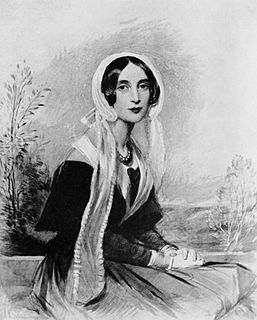A Quote by Jeremy Rifkin
James Watt patented his steam engine on the eve of the American Revolution, consummating a relationship between coal and the new Promethean spirit of the age, and humanity made its first tentative steps into an industrial way of life that would, over the next two centuries, forever change the world.
Related Quotes
Coal is a portable climate. It carries the heat of the tropics to Labrador and the polar circle; and it is the means of transporting itself whithersoever it is wanted. Watt and Stephenson whispered in the ear of mankind their secret, that a half-ounce of coal will draw two tons a mile, and coal carries coal, by rail and by boat, to make Canada as warm as Calcutta, and with its comfort brings its industrial power.
Today, nothing is unusual about a scientific discovery's being followed soon after by a technical application: The discovery of electrons led to electronics; fission led to nuclear energy. But before the 1880's, science played almost no role in the advances of technology. For example, James Watt developed the first efficient steam engine long before science established the equivalence between mechanical heat and energy.
I don't. We've had three technological revolutions that have changed the course of human history, all driven by physics. In the first, the industrial revolution, physicists developed Newtonian mechanics and thermodynamics, which gave us the steam engine and machine power. The second technological revolution was the electricity revolution. That gave us radio, television, and telecommunications. Then, physicists developed the laser and the transistor.
History was a trash bag of random coincidences torn open in a wind. Surely, Watt with his steam engine, Faraday with his electric motor, and Edison with his incandescent light bulb did not have it as their goal to contribute to a fuel shortage some day that would place their countries at the mercy of Arab oil.
But above all, what this Congress can be remembered for is opening the way to a new American revolutiona peaceful revolution in which power was turned back to the peoplein which government at all levels was refreshed and renewed and made truly responsive. This can be a revolution as profound, as far-reaching, as exciting as that first revolution almost 200 years agoand it can mean that just 5 years from now America will enter its third century as a young nation new in spirit, with all the vigor and the freshness with which it began its first century.
Spoken of the young Archimedes: . . . [he] was as much enchanted by the rudiments of algebra as he would have been if I had given him an engine worked by steam, with a methylated spirit lamp to heat the boiler; more enchanted, perhaps for the engine would have got broken, and, remaining always itself, would in any case have lost its charm, while the rudiments of algebra continued to grow and blossom in his mind with an unfailing luxuriance. Every day he made the discovery of something which seemed to him exquisitely beautiful; the new toy was inexhaustible in its potentialities.
The climate-change industrial complex pontificates that the U.S. has to stop using coal to save the planet. But even if the U.S. cut our own coal production to zero, China and India are building hundreds of coal plants. By suspending American coal production, we are merely transferring jobs out of the U.S.
The most revolutionary aspect of technology is its mobility. Anybody can learn it. It jumps easily over barriers of race and language. ... The new technology of microchips and computer software is learned much faster than the old technology of coal and iron. It took three generations of misery for the older industrial countries to master the technology of coal and iron. The new industrial countries of East Asia, South Korea, and Singapore and Taiwan, mastered the new technology and made the jump from poverty to wealth in a single generation.




































